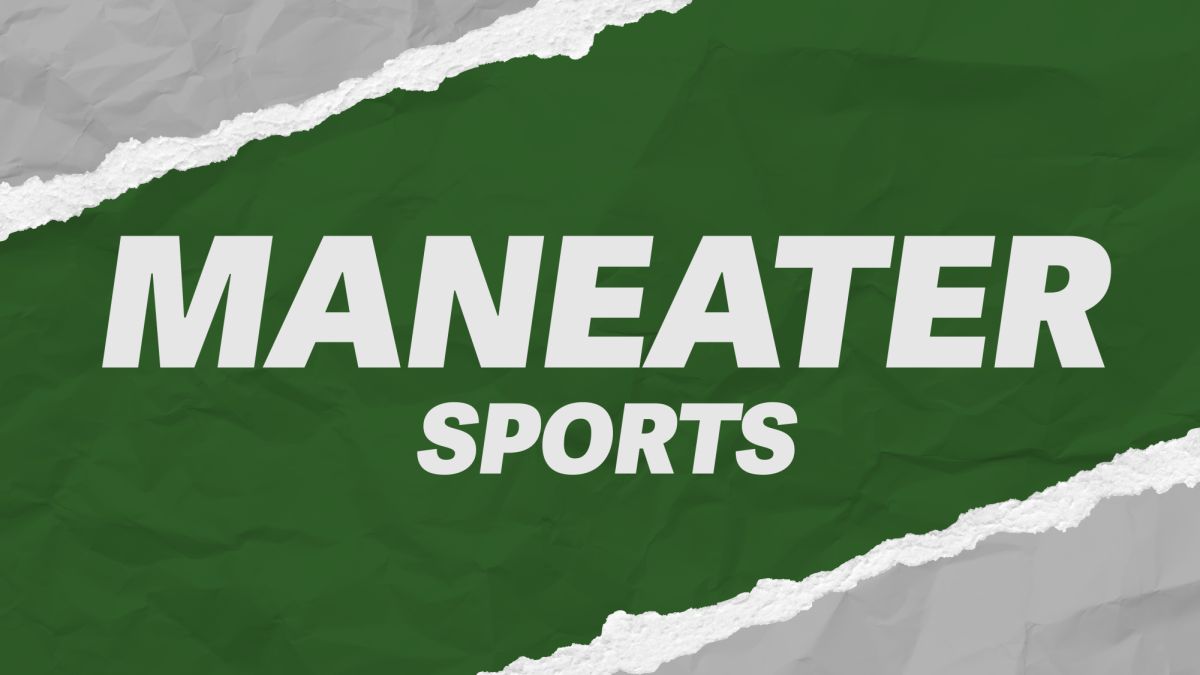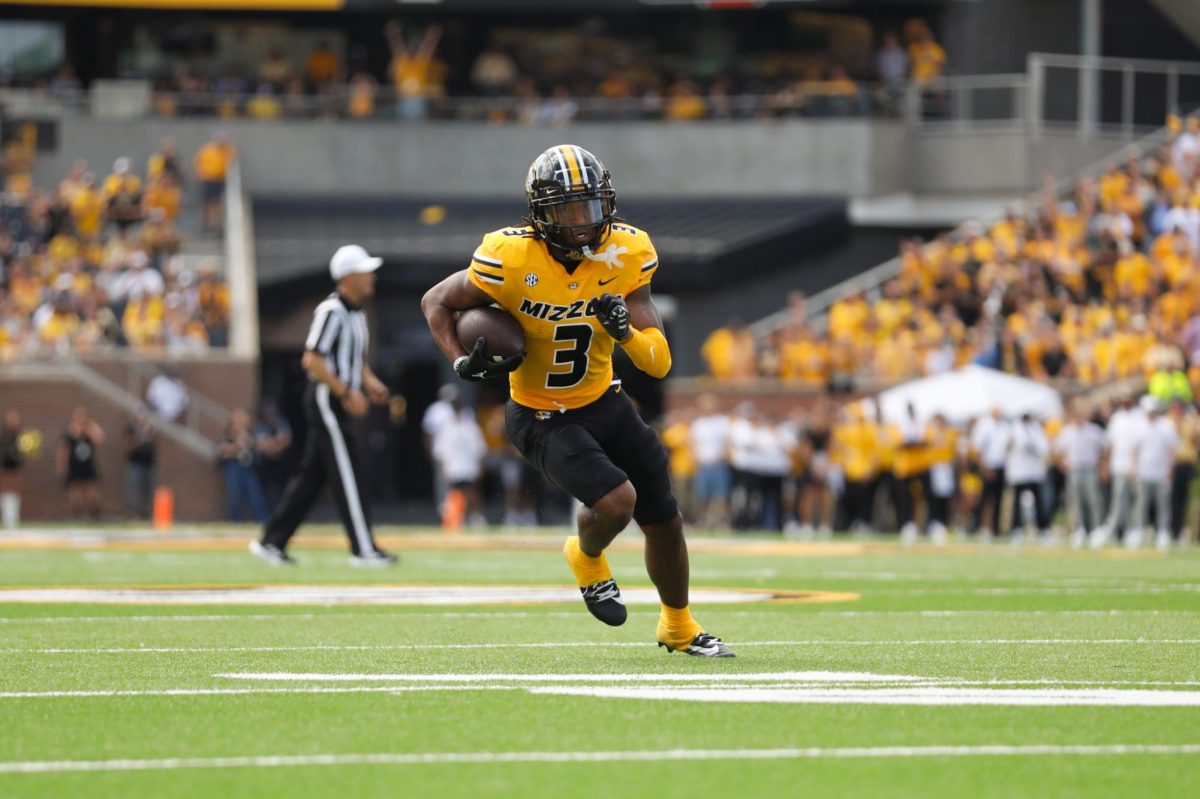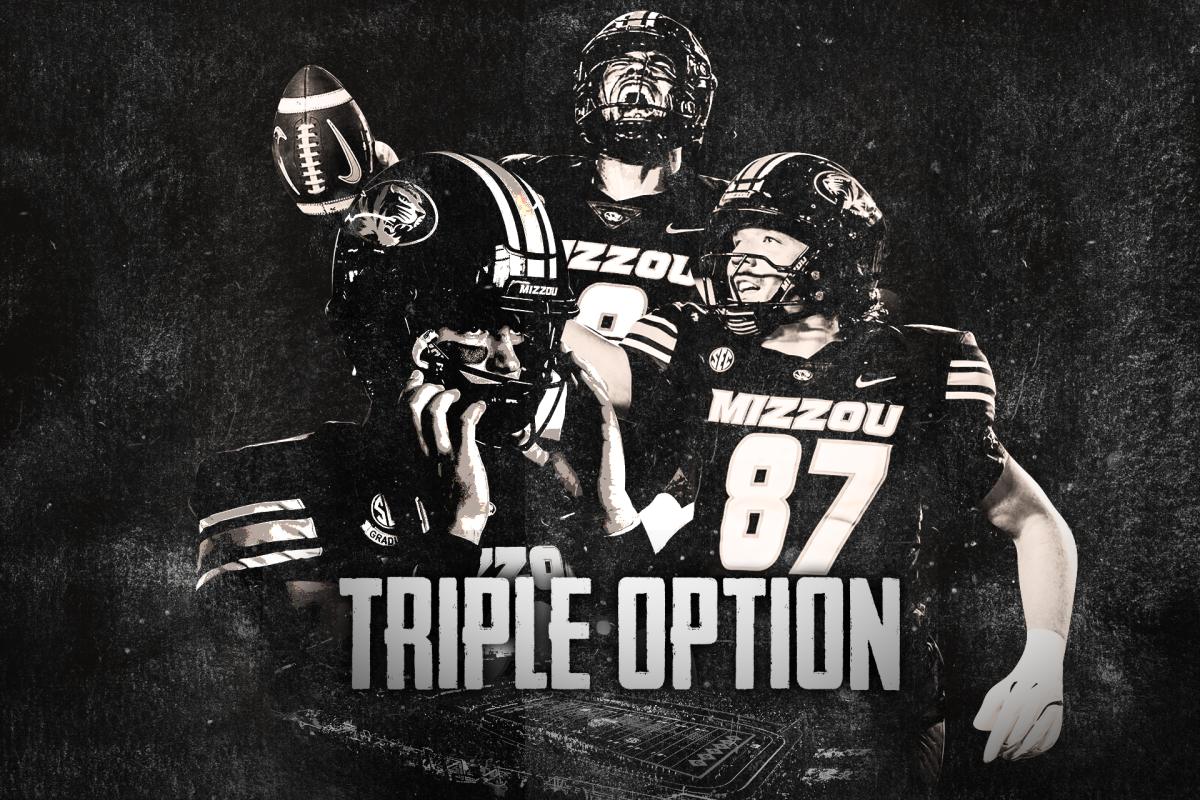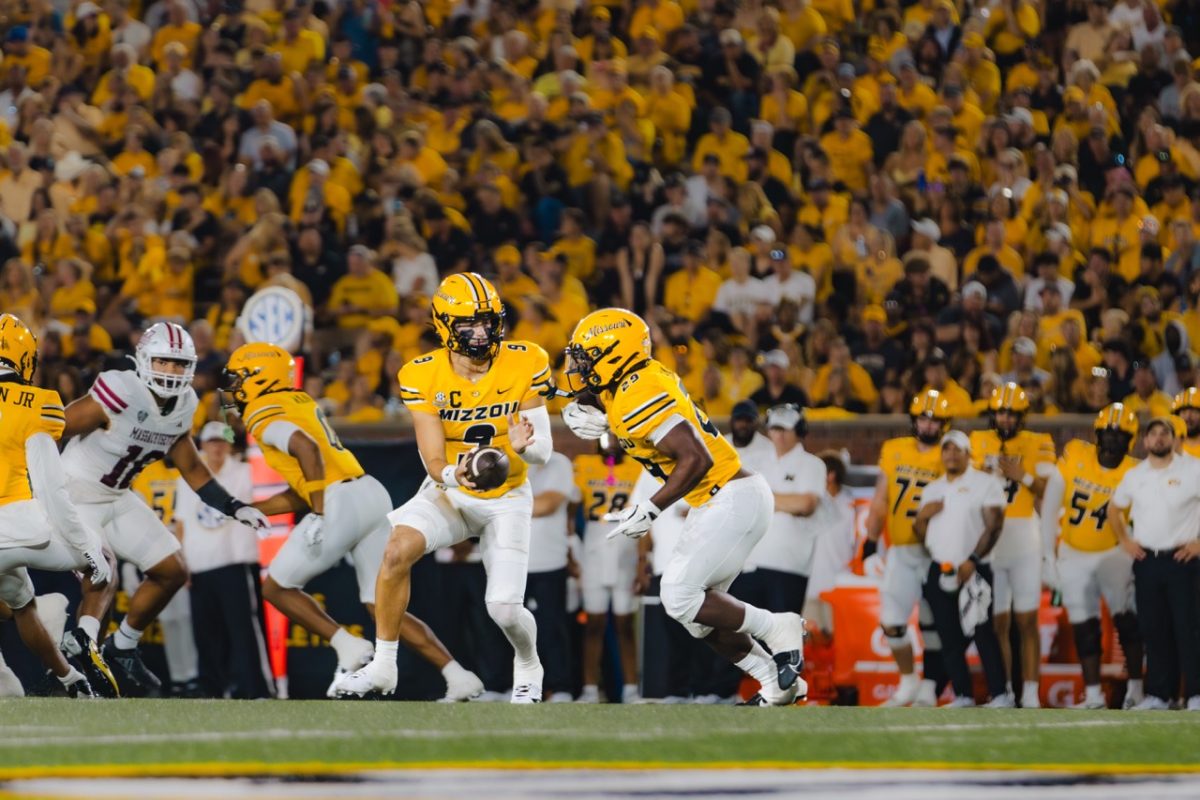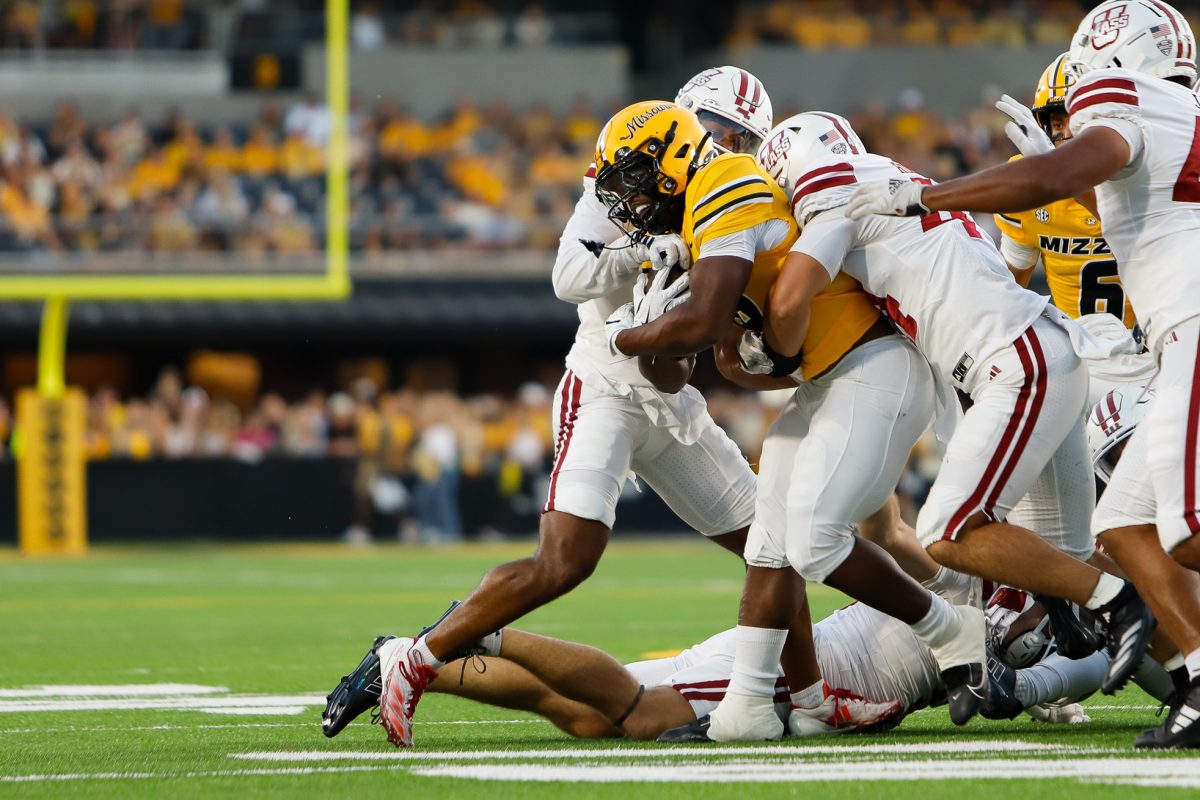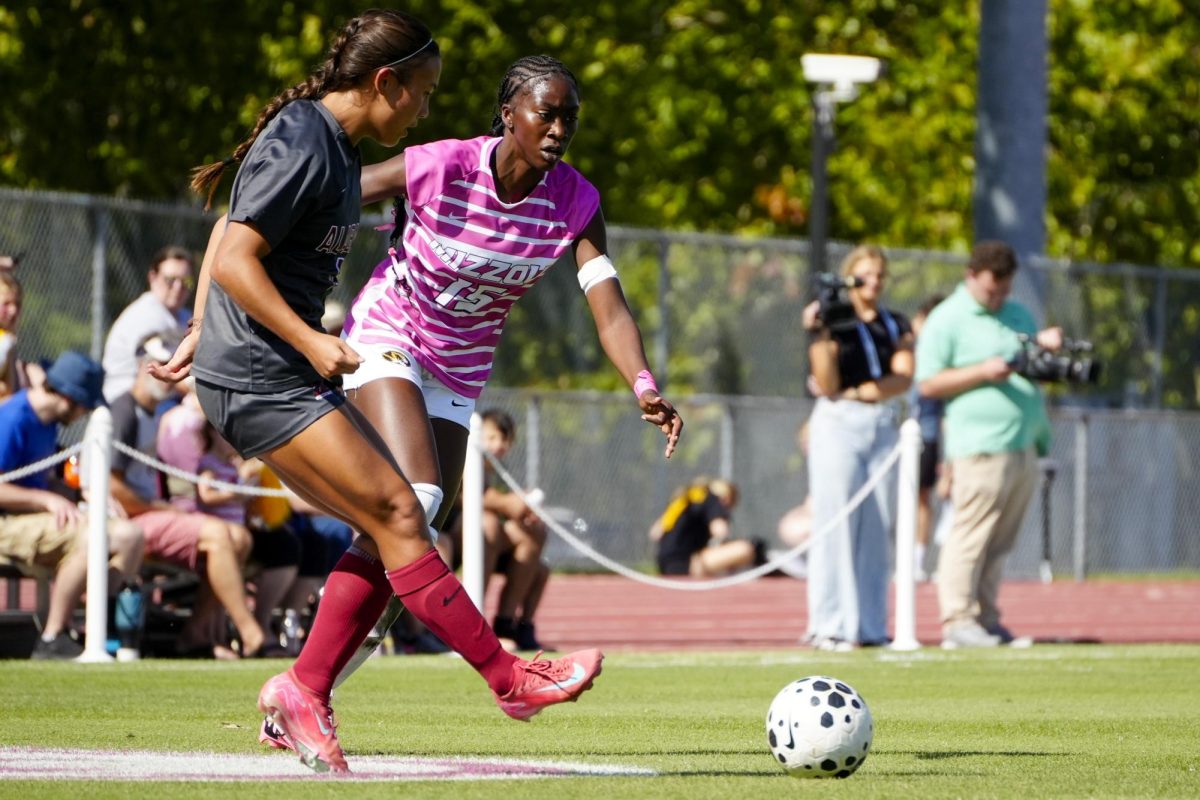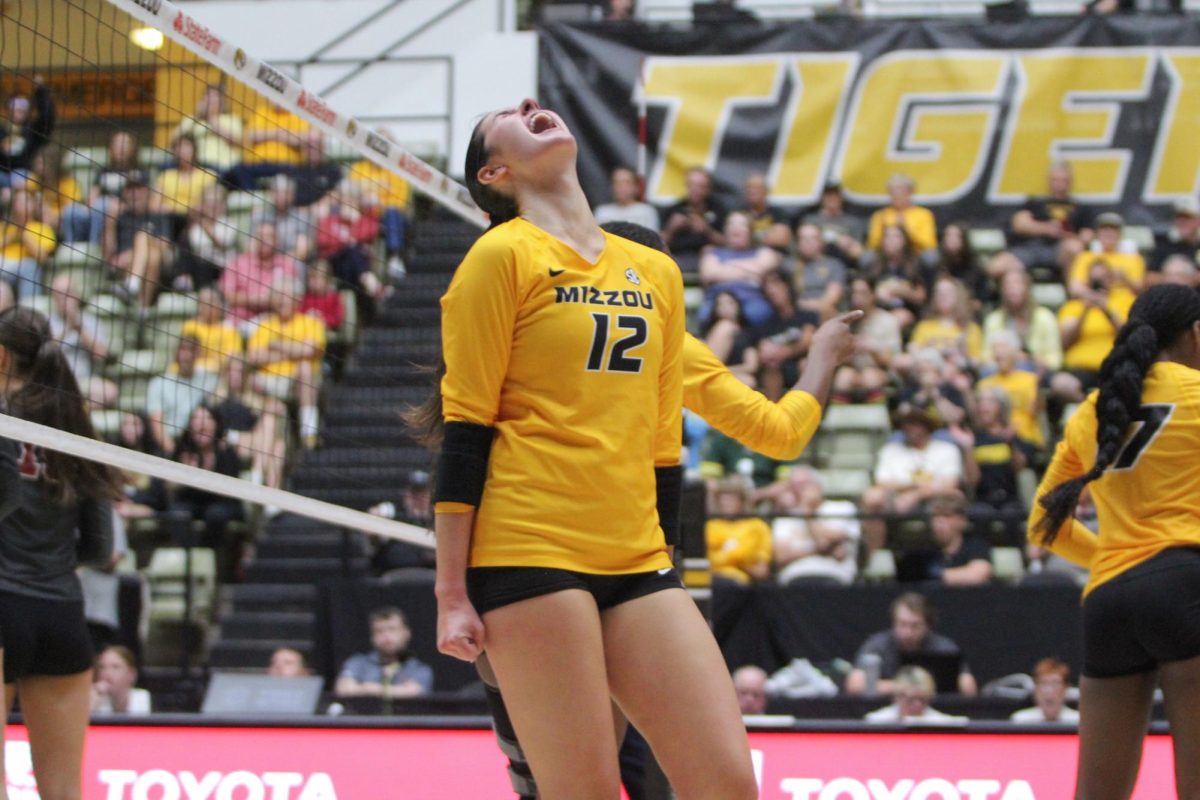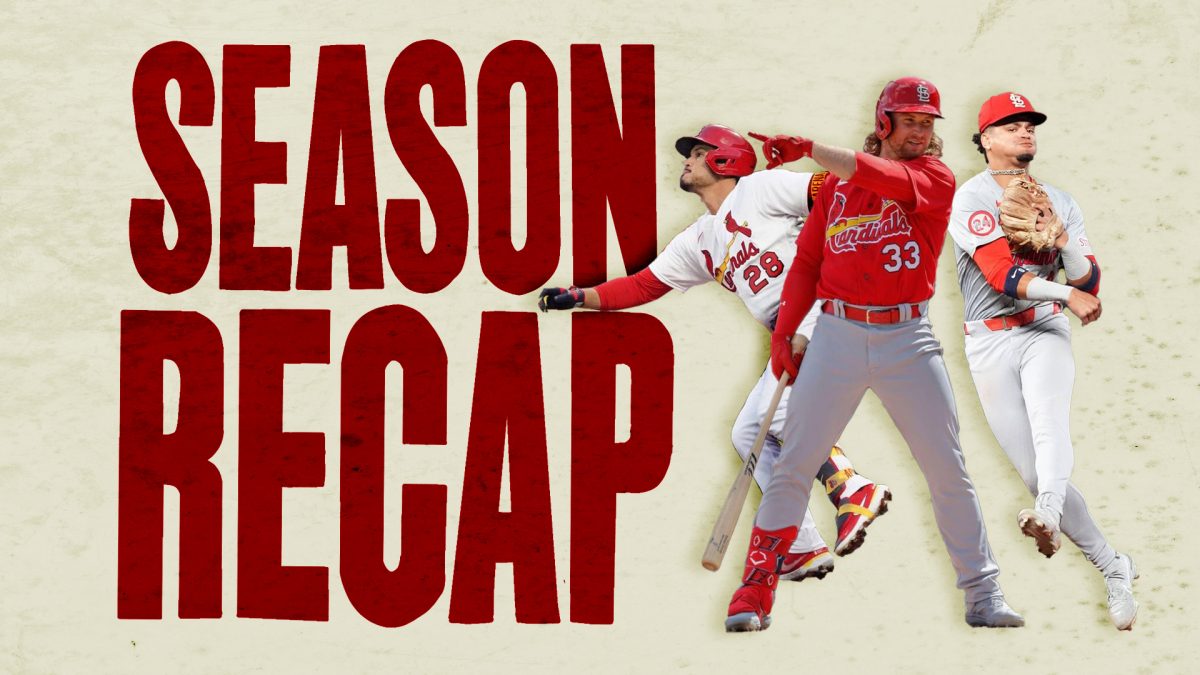“The current system is broken.”
Missouri’s Director of Athletics Jim Sterk minced no words during a press conference Tuesday afternoon addressing the NCAA’s decision to uphold sanctions against the university.
“Last night when we received our decision, obviously [was] disappointed,” Sterk said. “Then, shock quickly set in. Now I’m just angry. I’m angry because of our student-athletes and coaches who were so wrongly impacted by this decision from the Appeals Committee and the Committee on Infractions. The NCAA has proven again it cannot effectively serve its membership and the student-athletes it’s supposed to protect. The decision today is just wrong.”
MU Chancellor Alexander Cartwright spoke alongside Sterk, and while the pair admitted the university has no precedent for legal recourse on its case, both intend to continue their fight. They just have to attack it at its root.
“We certainly have exhausted our NCAA appeals process, but we will continue to push for meaningful and substantive reform of NCAA processes when it comes to compliance,” Cartwright said. “We know we’re not alone in that. That there are many other institutions that feel similarly.”
One of the biggest concerns shared by Sterk and Cartwright about the NCAA decision was its stark contrast to recent rulings on similar cases, specifically Mississippi State. In an almost identical scenario to Missouri’s, a Mississippi State athletics tutor committed academic misconduct in an online course for 11 student-athletes. That case went through the NCAA’s new negotiated resolution process following the university’s agreement with enforcement staff on the violations and penalties.
During Tuesday’s press conference, handouts were provided with side by side lists of the sanctions imposed on both Mississippi State and Missouri.
According to that handout, each of Missouri’s programs loses the following amount of scholarships per the 5% reduction: four football, 0.79 baseball and 0.85 softball. Similarly, for the 12.5% reduction in official visits, football loses seven, baseball loses four and softball loses one. Each program also faces seven-week bans on communications with recruits, unofficial visits and evaluations.
The athletic department also loses a significant amount financially as a result of the sanctions. Not only is there a $5,000 automatic penalty, but also a fine of 1% of each program’s budget. It’s also projected Missouri will lose $9-10 million because of the bowl ban for the football team.
Although most of the sanctions are nearly identical for Mississippi State, the Bulldogs face no postseason ban for either football or men’s basketball and fewer days lost for unofficial and official recruiting visits.
“No one can look at the Missouri case and the Mississippi State cases, which have almost identical violations, and say that common sense was used,” Sterk said. “There was no logic in today’s decision and result. This ruling is another example of frustration from our membership of the NCAA being consistently inconsistent.”
The other case to come up frequently in comparison to Missouri’s is that of University of North Carolina Chapel Hill. In UNC’s case, the Committee on Infractions ruled that there was no evidence of academic misconduct, despite allegations by the enforcement staff that student-athletes were provided with extra benefits such as special access and course assistance. Perhaps the most striking difference between the two cases was that both a former UNC department chair and a department secretary were uncooperative during the investigation.
While Sterk was careful to add that it was only speculation, he said he did believe the ruling in North Carolina’s case affected Missouri’s ruling.
“I think we were the next case up after that and those folks on the Committee on Infractions, they had a strong opinion of what should have happened with the North Carolina case and then we were the next case up,” Sterk said.
Cartwright was particularly concerned with the implications that Missouri’s cooperation throughout the investigation had no impact on the ruling and how other universities would perceive that.
“If you look at what we did, we acted with the highest integrity,” Cartwright said. “We immediately self-reported. We opened up completely to the NCAA enforcement staff, worked with them, went through the process. We received exemplary cooperation throughout this entire process, and in the end we received sanctions that others with comparable cases did not receive at all. That creates a truly chilling effect on compliance because people look at this and wonder ‘If we do that, what happens?’”
Despite the outcome of the appeal, both Sterk and Cartwright were firm in that should they have to go back through the process again, they would do it exactly the same. After all, Sterk chuckled during the press conference, it’s NCAA rules.
“You know, I can’t think of anything right now that we would do differently,” Cartwright said. “If we found out that something was happening, we would immediately self report. We would immediately work with the enforcement staff. We would do all the things we did. We would certainly hope we’d get a different outcome that time. It’s the right thing to do.”
Moving forward, the pair hopes Missouri’s case and its outcome will create conversation among NCAA member schools about reform within the association, specifically surrounding its infraction and appeals policies.
“I think there’s a lot of talk and there’s a lot of disgruntled people in the membership,” Sterk said. “Where we go from here, I don’t know. I think, like Chancellor Cartwright, there needs to be reform in the system to gain back some credibility … I think it’ll definitely be a topic of conversation. With the membership it already is. With the members, with the commissioners. Hopefully working with the NCAA staff to make it better.”
_Edited by Wilson Moore | [email protected]_



